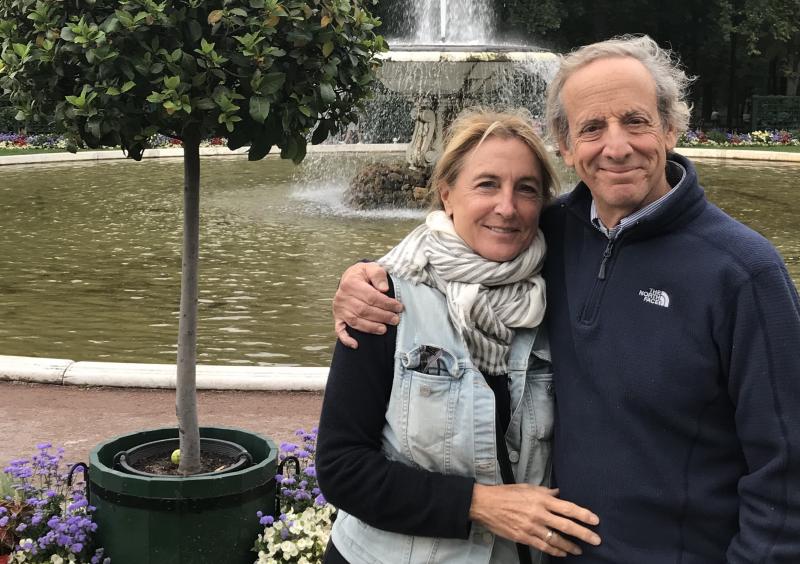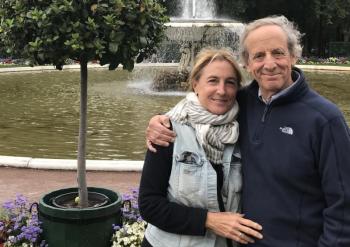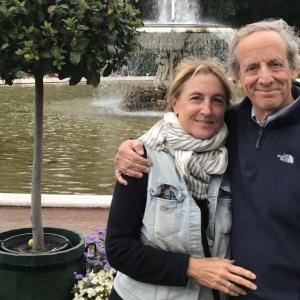Lincolnville couple isolate with breakthrough COVID, urge people to mask up
Christine and John Burstein are miserably sick this week, each with separate symptoms. Christine started with a massive head cold, and developed a deep, raspy cough. John’s stomach has been churning and he has been sleeping a lot. Both tested positive for COVID-19, despite being vaccinated in the late winter and early spring, and are suffering from what has become familiar part of every day conversations — the breakthrough cases.
“As of July 26, 2021, more than 163 million people in the United States had been fully vaccinated against COVID-19,” reports the U.S. Centers for Disease Control. “During the same time, CDC received reports from 49 U.S. states and territories of 6,587 patients with COVID-19 vaccine breakthrough infection who were hospitalized or died.”
Of those, 74 percent are over the age of 74.
In Maine, the Maine CDC is reporting 656 validated breakthrough cases as of Aug. 4.
“This number likely reflects an undercount of the true number of breakthrough cases as not all cases are investigated to determine vaccine status and it takes time to validate vaccine status, delaying cases being included in the count,” the Maine CDC said.
“Initially my head was full, with an awful cold,” said Christine. “I was coughing so hard that it hurt.”
That was Thursday, July 29, and Christine was due to race aboard a boat with an all-woman crew the coming weekend. So, she decided to drive to Waldo County General Hospital, in Belfast, to get a PCR test (the nose swab).
“What happens ‘if I’m positive,’” she asked herself. “We would be shoulder-to-shoulder on the boat.”
Twenty-four hours later, Christine learned that she had tested positive for COVID.
“It turned out to be an ‘if,’” she said, Aug. 3, speaking over the phone from her home in Lincolnville, where she and John were isolating, and riding through waves of different symptoms.
“I’m strong as a horse,” she said, in general good health and, as a nurse practitioner, she is focused on well-being.
But then Christine described how awful she feels with COVID, and wonders how those living with chronic disease and autoimmune disorders can hold up against the virus.
“The first couple of days it hit like a Mack truck,” she said. “Right now, I’m spacey and tired. I’m lucky that my symptoms were that mild.”
She and John were vaccinated in February and April, a two-step process, with the Astrazeneca vaccine. They spend winters in the Caribbean, and the South Korean vaccine was available on the island of Bequia.
According to the World Health Organization, the AZD1222 vaccine has an efficacy of 63.09% against symptomatic SARS-CoV-2 infection.
“Longer dose intervals within the 8 to 12 weeks range are associated with greater vaccine efficacy,” according to WHO.
The vaccines have helped people to create antibodies to the virus, but the Delta variant, which is becoming prevalent across the country, according to the U.S. Centers for Disease Control, can infiltrate; hence, the breakthrough cases that worry the population.
The Delta variant, one of four variants of concern, as classified by the CDC, has increased transmissibility, potential reduction in neutralization by some antibody treatments, and potential reduction in neutralization post-vaccination.
After getting the positive diagnosis, Christine, “got hold of everyone I knew, anybody I had a contact with, from those in yoga class to my massage therapist,” the latter who quickly cancelled a day of appointments.
The Maine CDC has called her once, as did her primary care doctor. The Respiratory Clinic at Waldo County General Hospital has called daily.
They are also checking in on John, who initially thought he had not contracted the virus. As soon as Christine got her diagnosis, they separated themselves in the house. John went to a drugstore to buy an over-the-counter diagnostic kit.
“It was negative,” said Christine, of the test result. “Maybe his viral load wasn’t up high enough for the over-the-counter to detect.”
But by Monday evening, he reported to Christine that he had a slight sore throat. Was it from the smoke from the fires out West? On Tuesday, Christine woke up and noticed John was still sleeping. And sleeping. And then the stomach complaints started.
On Tuesday, Aug. 3, he went for his own PCR test at WCGH, and results returned as positive.
So where did they pick it up?
Most likely, while they were in California, or in transit from, the previous Monday.
“They say it takes 48 hours,” said Christine, for symptoms to manifest.
While she reported that the airports were strict, as well as airlines and in-flight protocol, the restaurants and bars at the airport have an open-mask practice, whereby customers sit, eat and drink without wearing a mask.
Christine and John sat such a bar, next to young men on their way to Puerto Rico. They had a good time talking with each other, but Christine believes that may have been the transmission point.
“We were shoulder-to-shoulder and unmasked,” she said.
Two-plus days later, the cold symptoms started, and she was suddenly treating herself with with decongestant and antihistamines.
She and John have been transparent about getting sick, talking with friends on Facebook about the situation.
Reach Lynda Clancy at lyndaclancy@penbaypilot.com; 207-706-6657/
Event Date
Address
United States
























